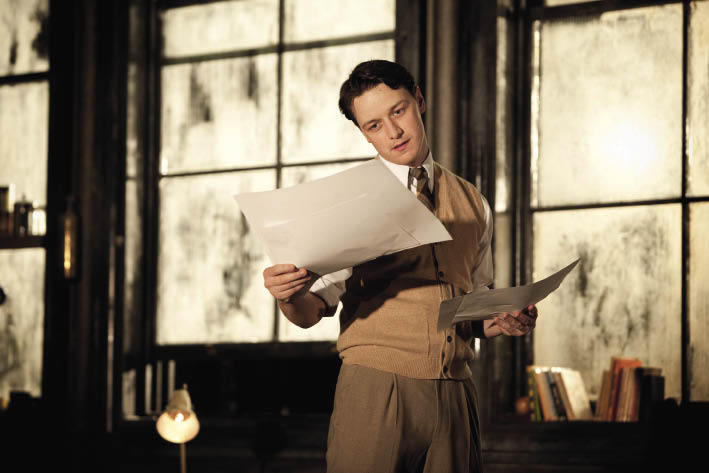Three Days of Rain
Apollo
This Isn’t Romance
Soho
Richly sophisticated and over-contrived. This is the glory and the failing of Richard Greenberg’s Three Days of Rain. But, first, hats off to a writer who expects his audience to be smart, clued-in and intellectually curious. Dimwits, stay in the bar, we’ll join you later. The play opens in a disused office space in 1995 where three young adults who grew up together are tussling over their dead father’s will. Dad ran a hugely successful architectural practice and the plot turns on the ownership of an award-winning, postmodern house, built in the early Sixties, whose innovative design launched the careers of its creators but whose true authorship is in doubt. Believe me, weaving these intractable themes into a play is extremely tricky. Making them plausible, interesting and narratively dynamic is trickier still. And in that sense the play’s first act is a wonder. Greenburg’s passion for architecture is matched by his eloquence. The passages in which the characters debate the particular qualities of light and space that make one building poetic and another banal will bear many repetitions.
Alas, the play trips up on its structural ambitions. The second act scrolls back 35 years and we watch the parents of the first-act characters working through a torrid and treacherous love-triangle. Because these sequences lack the suspense and wit of the first act, the result is imbalance, anticlimax and a sense of incompleteness: the play ends, weirdly, three decades before it began. The company play two characters each, which is highly satisfying for them, less so for us. That rather chilly young stud, James McAvoy, does OK here. First he’s a hysterical preppie jerk and later a silent and stammering young genius. Tough roles and McAvoy doesn’t quite chew them into tenderness. Lyndsey Marshal is efficient as the prim, scolding Nan in the first act but she flowers wonderfully as Nan’s loopy mother Lina, a louche, alcoholic temptress who has a magnetic attraction to talent. But the honours go to Nigel Harman who rides great gusts of charm and energy as Pip, a loveable and highly articulate nerd. Harman won a show-stopping ovation for his ‘being in a good mood doesn’t mean you’re a moron’ speech. What a pity his second-half role, Theo, is limited to a few drowned-rat appearances in a rainstorm. This enjoyable, stimulating show has a stylishly dilapidated set by Soutra Gilmour but the faults of the script make it a three-legged race rather than a sprint.
Soho Theatre’s Verity Bargate prize honours plays that seem veritably barking to the distinguished nonentities who judge the contest. And the winner is: This Isn’t Romance by In-Sook Chappell. It’s just the ticket. We’re in Seoul where Miso, a 32-year-old Korean orphan, has arrived from her Essex home to find her long-lost brother, a taxi-driver and part-time rent-boy. A translator helps Miso track down this skinny rat of a sibling, and their fraught reunion ends with Miso going nuts and hurling a chair at the translator. Later we learn that the brother speaks fluent English having picked it up while hiring out his haunches to American sex-tourists. So the translator was an illogicality wheeled on to lend the opening scene a bit of spicy violence. This is an intense, overheated and confused drama about the irresolvable sufferings of displaced desperadoes.
And there’s more. Miso, claiming to have been besotted with her brother for 25 years, starts sleeping with him and he responds by yanking her around his filthy squat by the scalp and sticking a knife to her throat. Naturally, she repays these courtesies by attempting to pay off his debts to the mob by swindling an English bar-owner out of 3,000 quid. For all its chaotic intensity the play doesn’t bear inspection. In-Sook Chappell insists that love goes hand in hand with sadism, and this callow prejudice makes the characters supremely unattractive and rather incredible. So what’s happening? A play that needs a rewrite, or, worse, a workshop, wins a prize. Well, there’s a conceit, popular with progressive fringe theatres, that cross-cultural plays are the acme of dramatic achievement. According to this peculiar thesis, cultures become interesting only when placed in an alien setting. But daffodils don’t look less agreeable in a daffodil bed than they do when growing out of a chocolate pudding, an acre of purple concrete, the face of Chairman Mao or the 13 times table. And as long as artistic directors pander to this daft parochialism, which masquerades as innovative universality, audiences will continue to be cheated out of decent new plays.







Comments